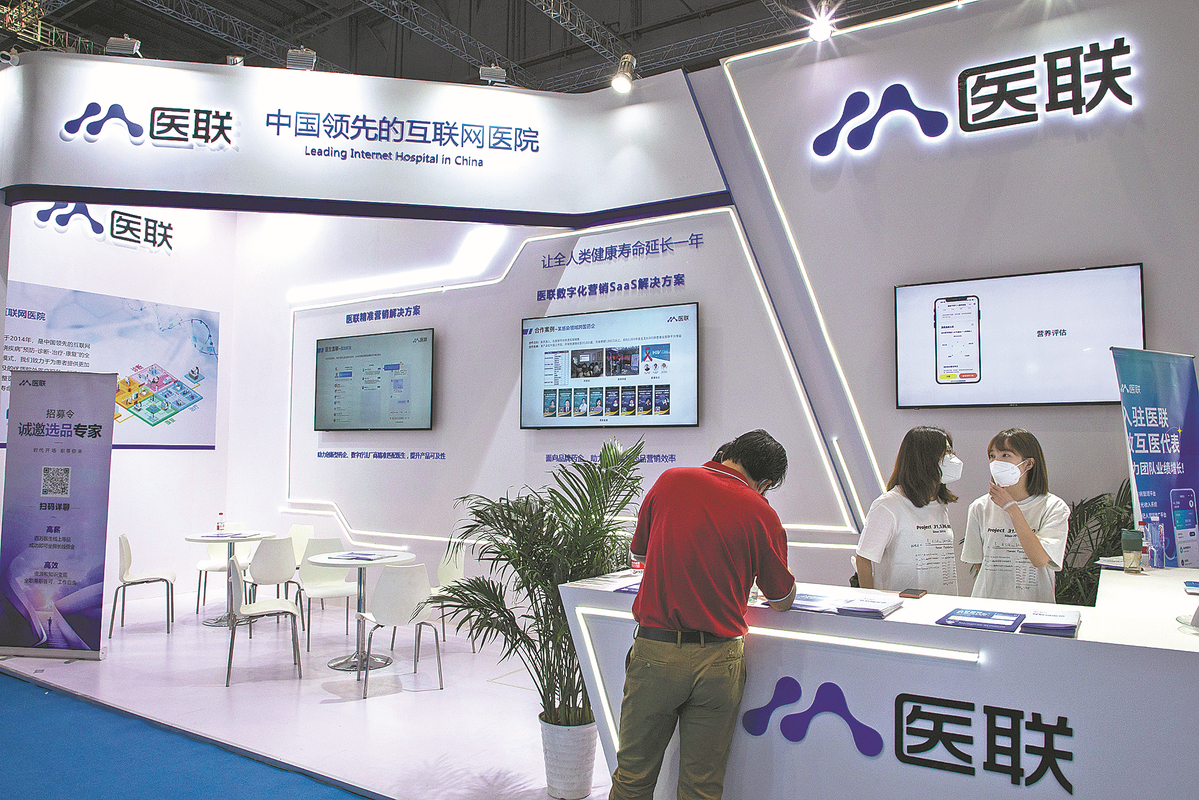Dr MedGPT could be omnipresent physician of medical sector in future
By CHENG YU | China Daily | Updated: 2023-08-16 09:24

"Hi, Dr MedGPT!"
A large number of Chinese patients will soon have their next medical appointment begin with such an opening, as China is giving birth to the first homegrown medical large language model following the late-2022 launch of the United States' Open AI's ChatGPT.
Chinese online healthcare provider Medlinker launched an AI doctor dubbed "MedGPT" earlier this year, which it claims is "just like a human doctor" and can diagnose some of the most common diseases with the same degree of accuracy and consistency as a living, breathing physician.
Unlike general purpose large-scale models, MedGPT was designed to offer practical diagnosis in real medical scenarios, and throughout the entire medical process, from disease prevention to diagnosis, treatment and rehabilitation.
"The integration of AI doctors and telemedicine services is certain to disrupt the entire medical field. At the same time, it will become possible to rapidly replicate high-quality medical resources and make them universally available," said Wang Shirui, founder and CEO of Medlinker.
As some question whether the AI doctor is just a passing tech fad, a real-world assessment took place between MedGPT's AI doctors and human doctors in June. The livestreamed evaluation involved 120 real patients and 10 attending physicians from West China Hospital, Sichuan University.
Seven renowned physicians from leading Chinese hospitals reviewed and scored the results based on criteria including consultation accuracy, diagnosis, treatment recommendations, suggested additional examinations, data analysis, explanations provided to patients, and the use of natural language in patient interactions.
To people's surprise, human doctors scored an average of 7.5 out of 10, while MedGPT scored 7.2.MedGPT's recommendations were found to be 96 percent as good as those from top-tier physicians.
"Looking into the future, we firmly believe that through MedGPT, both the efficiency and the effectiveness of doctors will be vastly enhanced. Furthermore, Medlinker's telemedicine service network will be able to leverage MedGPT to provide more convenient, efficient and accessible medical services to a significantly larger pool of patients while remaining affordable," Wang said.
But MedGPT hasn't yet been put into commercial use. Before it is put into actual practice, more efforts are needed from the government to launch related approvals, guidelines as well as rules for such generative AI tools for healthcare.
The company said it is looking for partnerships with companies and medical institutions to improve AI doctors' accuracy, train them to diagnose more diseases and will run a bigger trial later this year. It also hopes to work with medical experts to establish standards for AI-based healthcare services.
Chinese tech and medical companies are moving aggressively on the technology, while multinational corporations with a business focus on healthcare are sparing no effort to cash in on China's booming AI healthcare market.
According to medical data consultancy Vbdata.cn, the market scale of China's AI-related healthcare industry first exceeded 10 billion yuan ($1.37 billion) last year, and it is expected to grow at a high annual growth rate of 40 percent each year over the next three to five years.
Tencent Holdings, for instance, has developed one of the first AI-based disease management platforms for patients with heart failure. It can use explainable AI technology to warn of disease deterioration, AI-assisted gait analysis to classify the degree of heart failure, and big data to analyze clinical effects.
Zhang Yu, vice-president of Tencent HealthCare, said the accuracy rate of the system in terms of decision support is 90 percent, and it can more accurately evaluate the severity of psoriasis than clinicians.
However, Ma Ting, a professor of neuroinformatics at the Harbin Institute of Technology in Shenzhen, Guangdong province, said that when doctors make decisions as they diagnose patients, they are thinking about multidimensional data.
"But multidimensional data are difficult for AI to access. To fully allow AI to move from its current perceptual intelligence to cognitive intelligence, we still need more research, more data and more intelligent algorithms," Ma said.
























